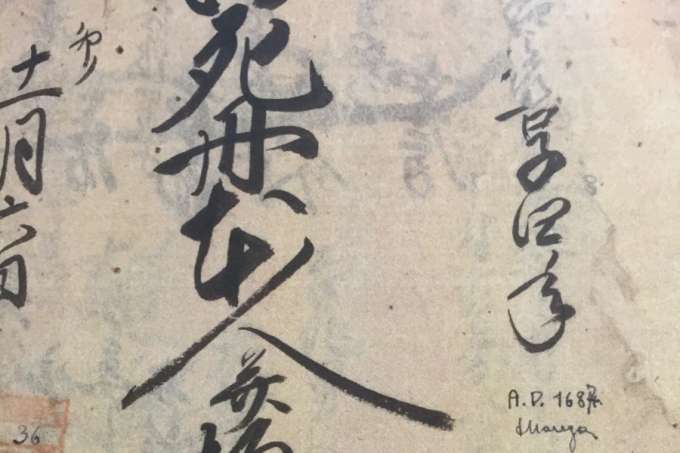The story of Japan's hidden Christians emerges from the Vatican archives
 Collected by a Salesian missionary to Japan in the early 20th century, letters and documents showing the history of Christians in the land of the rising sun have been recently restored by the Vatican archives and library.
Collected by a Salesian missionary to Japan in the early 20th century, letters and documents showing the history of Christians in the land of the rising sun have been recently restored by the Vatican archives and library.
The collection conveys the story of the persecution of Christians in Japan, a story that Pope Francis has often recalled when speaking of the "hidden Christians" who knew how to keep and pass on the faith in a time of persecution, and even when deprived of priests.
The Vatican Library and Secret Archives contain precious testimonies of those Christians who between the 16th and 19th centuries lived under violence and humiliation, thanks to the missionary Fr. Mario Marega, and now the Marega Fund.
Fr. Marega, a Salesian from Croatia, arrived in Kobe in 1929 to begin his missionary life. Through the 1950s, in addition to his evangelistic mission, his passion for study led him to learn of the prohibitions that Christians in northern Kyushu underwent due to their faith, which the feudal shogun enforced politically. Despite this, some Japanese converted with the arrival of Jesuit missionaries in the 16th century.
The Marega Fund has an immense number of documents collected by its namesake, many of which were long held in the Salesian University. Among them are two large boxes which Fr. Marega wanted to give to Venerable Pius XII in 1953.
The letters have now returned to light through the restoration work of the Vatican Library. A recent exhibition helped to open up new perspectives on what really happened with the history of the 'Kakure Kirishitan' (hidden Christians).
Stories of the first Japanese priests intersect with tragic events that didn't frighten a community which chose to remain faithful.
The exhibition is the fruit of a cooperation among the Vatican Library, the archives of Japan's National Institute for the Humanities, and the civic authorities of Oita and Usuki, two cities on Kyushu. Among the topics discussed is the conservation of the texts, which are written on delicate Japanese rice paper.
Nagasaki Teruaki, Japan's ambassador to the Holy See, recalled on the opening day of the exhibition that the 'Kakure Kirishitan' were “discovered” 150 years ago, when Japan was reopened to the world.
Archbishop Jean-Louis Bruguès, head of the Vatican Library and Secret Archives, recalled that Christianity arrived to the Japanese archipelago more than four centuries ago, "but the shogun authorities, even before the penetration of European traditions and customs in the closing of pre-modern Japan, quickly grasped it's political significance, and arranged for it's eradication.”
“This decision resulted in a complex bureaucratic mechanism,” the archbishop said, “whose meanderings are now explored by the composite team of historians, archivists, and restorers who wander through the plots, passing through the sieve thousands of archival documents, produced in four centuries by the feudal Usuki administration."
Source: Catholic News Agency

